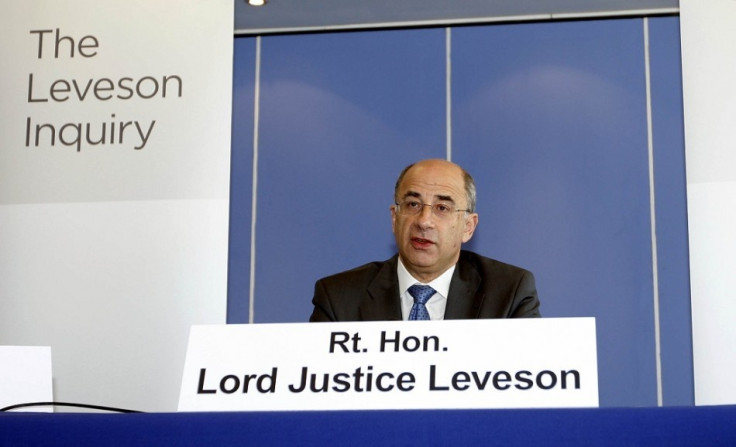Leveson: Tories Reveal Plans for Royal Chartered Press Watchdog
Government plans tougher press regulations enforced by royal charter but Hacked Off says rules are 'Leveson-deiant'

The Conservatives have published their plans for a royal charter-backed panel to oversee press regulation in the wake of the Leveson Inquiry.
The recommendations published by Lord Leveson in his 2,000-page report in November, which called for statutory regulation of the industry, were largely rejected by Prime Minister David Cameron.
Instead, the government has proposed using a "Recognition Panel" underpinned by a royal charter, not legislation, to oversee a new press regulator.
The move was described as "the toughest press regulation this country has ever seen".
The plan excludes present or former newspaper editors of sitting on the panel. MPs are also not welcome on the panel.
The panel, who will ensure the press complies with the principles laid out in the Leveson Report, will be appointed by an independent committee. The first chair will be Baron Simon Brown, a former Justice of the Supreme Court.
The proposal also states the panel will be appointed in a "genuinely open, transparent and independent way, without any direction from industry or influence from government".
The new watchdog would also be evaluated by a recognition panel every three years to make sure newspapers are still keeping themselves in check sufficiently.
However, press reform campaigning group Hacked Off described the draft bill as falling "a long way short" of the promises made by Cameron. They said he told the group that his charter proposal would deliver "the whole of Leveson".
The Liberal Democrats and Labour have both said they are in favour of full legislation on press standards.
Status quo not an option
Culture secretary Maria Miller said: "The royal charter would allow the principles of Leveson to be implemented swiftly and in a practical fashion. It would see the toughest press regulation this country has ever seen, without compromising press freedom.
"I have been clear that the status quo is not an option and that we need tough independent self-regulation. Equally, I have said that I have grave concerns about a press bill and am not convinced that it is necessary on the grounds of principle, practicality or necessity.
"The ongoing cross-party talks will seek to secure consensus around the royal charter."
Hacked Off added: "Six weeks ago ministers shared with Hacked Off their plans for the charter at that time. While these were far from being fully Leveson-complaint, they appeared to show an intention to create something that would work in the public interest. Then ministers stopped speaking to us. Now, weeks later, we see a document that is not so much Leveson-compliant as Leveson-defiant.
"We call on ministers to comply at least with Leveson's recommendations 82-84, which require complete and up-to-date transparency of dealings they have with the press industry. They must come clean and reveal the record of their meetings with and correspondence with proprietors and editors - and with the executives and lawyers lobbying on their behalf.
"A crucial element of the Leveson Inquiry and the Leveson Report was the problem of relations between the press and politicians. The public should be told what has happened in this case."
© Copyright IBTimes 2024. All rights reserved.






